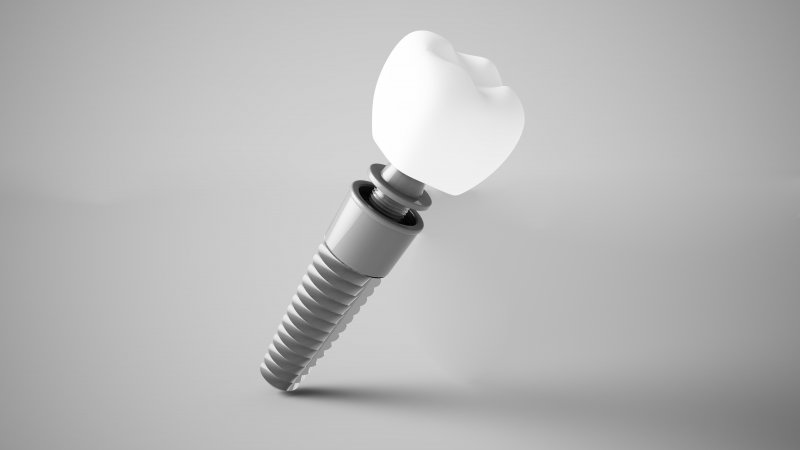
Dental implants are considered the best method available for replacing lost teeth. They look and function like the real thing, allowing patients to restore their smile and eat things that would have been unchewable with traditional tooth replacement appliances like dentures or bridges. While you probably see them more frequently than you think, there are a few common misconceptions about them going around. Here are a few dental implant falsehoods as well as the truth behind them.
Falsehood #1: Dental Implants Are Hard to Care For
Many people might assume that, since dental implants are such advanced and high-quality restorations, they require extensive care and maintenance to keep looking great and working properly. Thankfully, nothing could be further than the truth. Dental implants only require the same care and maintenance as natural teeth, including brushing, flossing, rinsing with antibacterial mouthwash, and seeing a dentist regularly.
Falsehood #2: Dental Implants Can Damage Your Other Teeth
Some dental restorations such as bridges require the alteration of healthy teeth to be placed. This is not so with dental implants because they are not anchored to other teeth but surgically placed directly into the jawbone. This allows them to function just like the adjacent teeth without altering them in any way. In fact, dental implants can preserve the health of the jawbone or even reverse its atrophy, preventing other teeth from being pulled out of place and becoming more vulnerable to injury and decay.
Falsehood #3: Dental Implants Always Last Forever
While dental implants can last for the rest of the patient’s life with proper care and maintenance, other factors can diminish their lifespan significantly. Dental implants consist of a titanium post and a lifelike artificial tooth. The titanium post is placed in the jawbone, and the surgical site must heal properly for the implant to fuse properly to the bone. Factors like poor oral hygiene, gum disease, and smoking can cause the dental implant to fail. While a healthy dental implant can be expected to be long-lasting, the artificial tooth component may need to be replaced after several years.
Dental implants are an excellent way to restore a compromised smile, and you should understand how they work and what you can expect from them if you’re considering getting them. Consulting with your dentist can determine if dental implants are a good treatment for you.
About the Author
Dr. Cedric Chenet earned his Doctor of Dental Surgery at Howard University in Washington in 1982 before serving as a dental officer in the U.S. Air Force. He has undergone extensive post-graduate training in fields such as periodontics, endodontics, and prosthodontics. His office in Melbourne, FL offers general, cosmetic, restorative, and emergency dentistry as well as dental implants. For more information about getting dental implants, contact his office online or dial (321) 253-3136.
